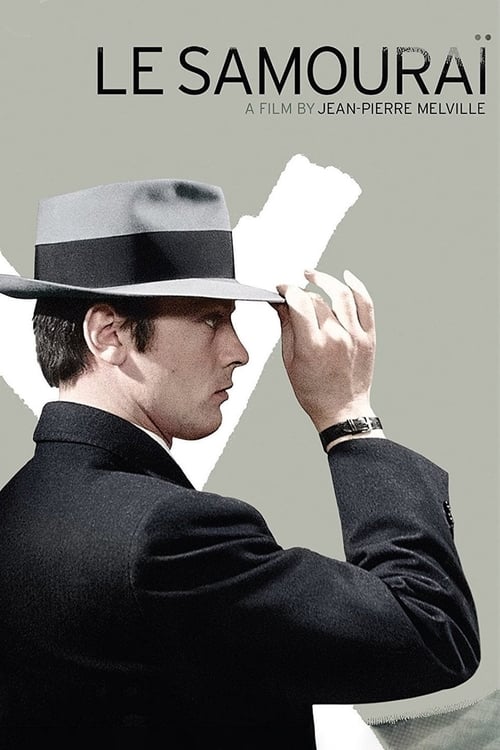
Title: Le Samouraï
Year: 1967
Director: Jean-Pierre Melville
Writer: Georges Pellegrin
Cast: Alain Delon (Jef Costello), François Périer (Superintendant), Nathalie Delon (Jane Lagrange), Cathy Rosier (Valérie), Michel Boisrond (Wiener),
Runtime: 105 min.
Synopsis: After carrying out a flawlessly planned hit, Jef Costello, a contract killer with samurai instincts, finds himself caught between a persistent police investigator and a ruthless employer, and not even his armor of fedora and trench coat can protect him.
Rating: 7.762/10